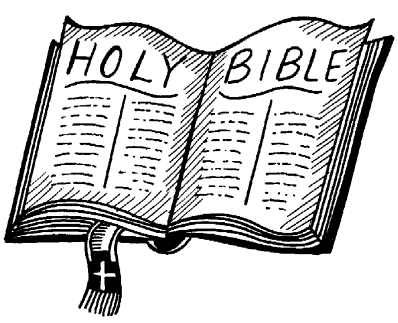The views expressed in our content reflect individual perspectives and do not represent the authoritative views of the Baha'i Faith.

[Editor’s Note: This is the final installment of a multi-part essay called “Questions from a Clergyman”. Click here to read from the beginning.]
One of the most unusual questions I have fielded, coming as it did from the minister of an independent Protestant evangelical church, was this one: “Do Baha’is accept Church doctrine as set in the Church Councils?”
A strange question, I thought, because this church had long since departed from the guidance of the Orthodox and Catholic Councils. And yet, Pastor Dan gave an historical timeline for these councils, in an attempt to show that the Baha’i Faith did not draw doctrine from them.
When we consider the “church fathers” and the series of councils that shaped current Christian doctrine, I believe we must look carefully at the pages of history to see how closely these divines adhered to the covenant Christ established with His disciples, to love one another. The formal doctrine of the Trinity, to cite just one example, was forged in the fires of hatred and intolerance. Having established that Christ had both a human and divine nature, the detail of whether He possessed one will or two was enough to cause untold grief, suffering and warfare by Christians at the hands of other Christians.
My personal belief? Based on my reading of scripture and history, by the time the disunity and institutionalized hatred between Christian “factions” had come to this point, the warring groups had already severed themselves from the Christ’s counsel to love one another.
At some point in history, most Protestants ceased accepting the word of the leaders of the Catholic or Orthodox Churches as being doctrinally correct. I don’t know what criteria these organizations use to determine where that historical cut-off point lies — mine is the clear evidence that the Covenant with Christ, as outlined in the book of John, was broken. Christians had replaced “sincere love of the brethren” with concern over the interpretation of doctrine (Should a cross have one bar, two, or three? Was Christ of one will, or essence, or energy with the Father? Was it faith, or grace, or works or all three that saved a person?) and held “the sacraments” and doctrinal correctness as higher truths than love, charity, or any other Christian virtue.
If, as Christ says, His words serve as the criteria by which the believer — and in a broader context, the body of believers — is judged, then to which words does He refer if not the ones in His final message to His beloved disciples?
“Ye are my friends, if ye do whatsoever I command you. …These things I command you, that ye love one another.” – John 15:16,17.
So, no, we told Pastor Dan, Baha’is do not accept church doctrine as established by the various Councils; rather, we accept the revealed Word of God. Baha’is have no dogma, no rituals and no clergy; and in fact believe that the newly-revealed Baha’i teachings constitute a covenant between God and humanity. This is the same covenant that has been made in ages past by Teachers as seemingly diverse as Krishna and Christ:
I am the Way, and the Master who watches in silence; thy friend and thy shelter, and thy abode of peace. I am the beginning and the middle and the end of all things; their seed of Eternity, their Treasure supreme. — Bhagavad Gita 9:16-18
I am the Way and the Truth and the Life. No man comes to the Father but by Me. If you really knew Me, you would know My Father as well. From now on, you do know Him and have seen Him. — John 14:6,7
As if concluding an ongoing conversation, Baha’u’llah writes that God:
… hath manifested unto men the Day Stars of His divine guidance, the Symbols of His divine unity, and hath ordained the knowledge of these sanctified Beings to be identical with the knowledge of His own Self. Whoso recognizeth Them hath recognized God. Whoso hearkeneth unto Their call, hath hearkened unto the voice of God, and whoso testifieth to the truth of Their revelation, hath testified to the truth of God Himself…. Every one of them is the Way of God that connecteth this world with the realms above…. They are the Manifestations of God amidst men, the evidences of His Truth, and the signs of His glory. — Gleanings, pp. 49-50.
Baha’u’llah refers to the Covenant between the divine Teacher and the believers as the “pivot of the oneness of mankind”. In an age when disunity between different segments of humanity can wreak untold misery and destruction on the innocent and shred the fabric of global society, Baha’is work for unity.
And in fact, Baha’is believe that international, religious and racial unity characterizes this stage in the maturation of humanity. We invite everyone, from whatever segment of society or belief system, to consider Baha’u’llah’s message, to ask questions just like Pastor Dan did, and then to decide for themselves about the truth of the Baha’i teachings.
Read the previous article in the series: Won’t the Dead Rise Again?


















Comments
Sign in or create an account
Continue with Facebookor